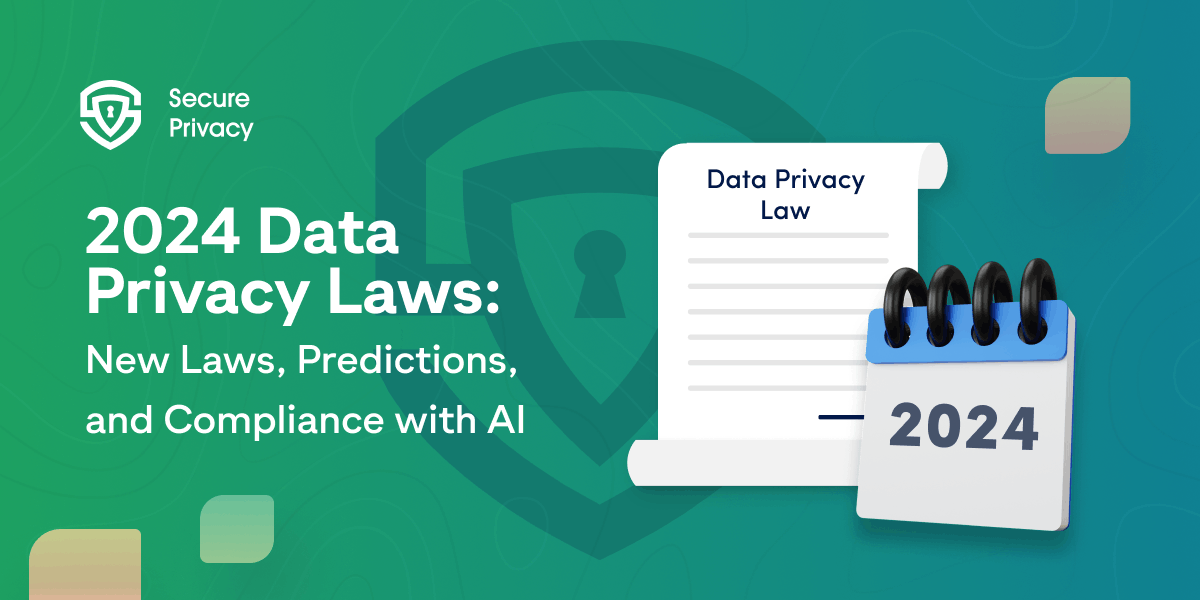
Increased Consumer Trust and Responsibility

Data privacy laws, particularly the General Data Protection Regulation (GDPR) in Europe and the California Consumer Privacy Act (CCPA) in the U.S., have established a framework that fundamentally reshapes how businesses interact with consumer data. These regulations articulate clear rights for individuals regarding their personal information, enhancing consumer trust. Consumers now expect transparency from organizations about how their data is collected, used, and protected. A McKinsey survey found that 87% of participants would avoid companies with inadequate security practices, highlighting the link between data privacy policies and consumer confidence[2].
Regulatory frameworks emphasize the importance of obtaining explicit consent from consumers for data collection and processing. This change compels organizations to adopt more responsible data-handling practices, ensuring that data collection is not only lawful but also aligned with user expectations and ethical considerations. As consumers become increasingly aware of their rights, they are more likely to share data when they believe it is handled responsibly, which can lead to better engagement and loyalty to trusted brands[1][3].
Compliance and Operational Challenges for Businesses

The implementation of data privacy laws presents various operational challenges for businesses. Organizations must ensure compliance with a complex web of regulations that may vary significantly across jurisdictions. This includes understanding different requirements related to data subject rights, security measures, and consent[7][9]. As laws like the Texas Data Privacy and Security Act and California's Delete Act evolve, businesses are required to adjust their data handling processes, which may involve significant changes to IT infrastructure and operational practices[3][4].
Moreover, non-compliance can lead to severe penalties. Under the GDPR, companies can face fines reaching up to 4% of their global revenue for violations, prompting many to reassess their data governance strategies and invest heavily in compliance to avoid such repercussions[5][9]. This financial burden can be particularly challenging for smaller organizations that may lack the resources to implement comprehensive data privacy programs[2][4].
Evolving Regulatory Landscape

The landscape of data privacy laws is continually evolving in response to technological advancements, consumer concerns, and governmental actions. As new regulations emerge, such as the Digital Services Act and the AI Act in the EU, there is a clear trend towards stricter oversight of how personal data is utilized and shared[3][6]. The proliferation of data privacy laws signifies a global shift toward protecting individuals' data rights, with legislation in countries like Brazil (LGPD) and India reflecting similar sentiments to those found in the EU and the U.S.[9].
Organizations operating internationally face the additional challenge of navigating these differing regulations. This complexity necessitates a proactive approach to data governance, where companies must not only comply with current regulations but also anticipate future legal developments. The variability in enforcement standards across jurisdictions requires businesses to be versatile and adaptable in their data privacy strategies[8][9].
The Role of Technology in Compliance
Technological advancements are also reshaping the implications of data privacy laws. AI and big data analytics have emerged as critical tools for organizations to manage compliance more effectively. However, they also introduce significant privacy concerns, as seen in recent debates around the ethical use of AI and personal data processing[1][3]. There is an increasing demand for businesses to utilize privacy-enhancing technologies that comply with legal standards while also protecting consumer data without compromising operational efficiencies.
Moreover, businesses must adopt practices like privacy by design, where data protection measures are integrated into the development of business processes and technologies. This proactive stance not only aids compliance with regulations but also builds consumer trust by demonstrating a commitment to safeguarding personal information[7][8].
Building Consumer Empowerment
A significant implication of data privacy laws is the empowerment of consumers regarding their personal data. Regulations like GDPR and CCPA underline the importance of consumer rights, enabling individuals to control their data through rights such as access, correction, deletion, and portability. This shift fosters a sense of agency among consumers, who are increasingly vocal about how their data should be managed[2][3]. Furthermore, as various states in the U.S. adopt their privacy laws, the trend towards consumer empowerment is likely to continue, encouraging businesses to be more transparent and responsive to consumer concerns[4][5].
Conclusion

Data privacy laws are not just a set of compliance requirements; they are transforming the landscape of how organizations and consumers interact regarding personal data. While these regulations present challenges for compliance, they also offer opportunities to build consumer trust and establish ethical data practices. As the regulatory environment continues to evolve, organizations must remain vigilant and adaptive, prioritizing transparency and responsibility in their data management strategies to thrive in a data-centric world.
Get more accurate answers with Super Pandi, upload files, personalized discovery feed, save searches and contribute to the PandiPedia.
Let's look at alternatives:
- Modify the query.
- Start a new thread.
- Remove sources (if manually added).